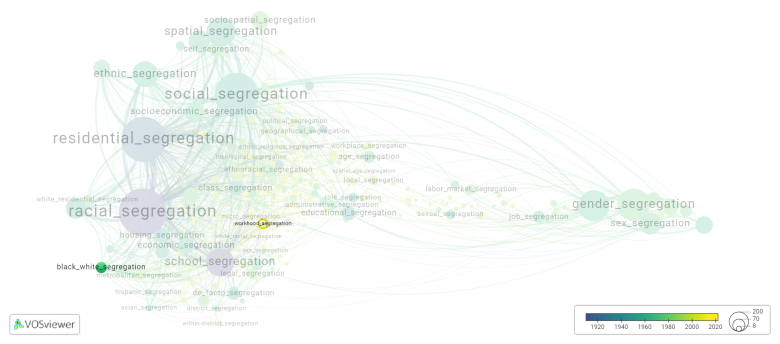Workhood segregation
Date and country of first publication[1]
2019
United States
Definition
Workplace segregation refers to the division of employees based on certain characteristics such as gender, race, age, ethnicity, and even job positions within a company. It can occur through intentional or unintentional practices that result in certain groups of people being concentrated in specific roles or departments within an organization.
Workplace segregation can have negative consequences, including limiting opportunities for individuals from marginalized groups, perpetuating inequalities, and hindering diversity and inclusion efforts. It can also contribute to a lack of representation and limited perspectives within decision-making processes and leadership positions.
Efforts to combat workplace segregation include promoting diversity and inclusion initiatives, implementing fair and unbiased hiring practices, providing equal opportunities for career advancement, and fostering an inclusive work culture that values and celebrates diversity.
See also
Related segregation forms
Workhood segregation is frequently discussed in the literature with the following segregation forms:
residential segregation, social segregation, racial segregation, metropolitan segregation, black white segregation, work segregation

This visualization is based on the study The Multidisciplinary Landscape of Segregation Research.
For the complete network of interrelated segregation forms, please refer to:
References
Notes
- ↑ Date and country of first publication as informed by the Scopus database (December 2023).
Workhood segregation appears in the following literature
Hall M., Iceland J., Yi Y. (2019). Racial Separation at Home and Work: Segregation in Residential and Workplace Settings. Population Research and Policy Review, 38(5), 671-694. Springer Netherlands.https://doi.org/10.1007/s11113-019-09510-9
Hall M., Iceland J., Yi Y. (2019). Racial Separation at Home and Work: Segregation in Residential and Workplace Settings. Population Research and Policy Review, 38(5), 671-694. Springer Netherlands.https://doi.org/10.1007/s11113-019-09510-9
